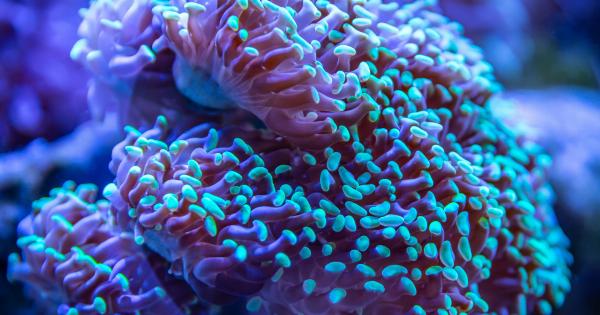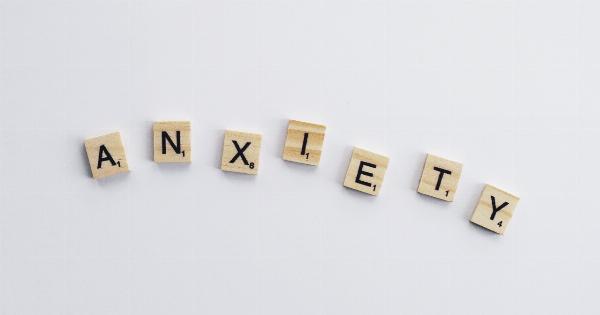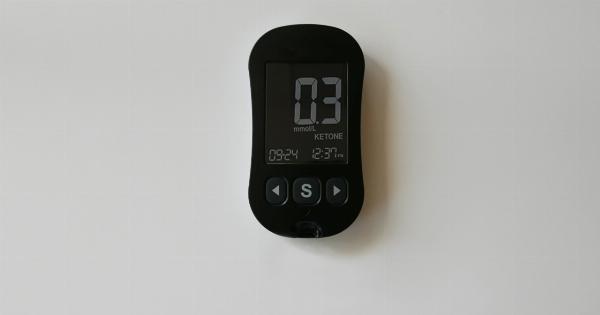Salt has long been a staple in the human diet. Its ability to enhance flavors and preserve food has made it a crucial ingredient in many cuisines around the world.
However, while salt is essential for the body to function properly, excessive consumption can have detrimental effects on your health. In this article, we will explore the signs that indicate salt is ruining your health and how you can effectively manage your sodium intake for a healthier lifestyle.
1. High Blood Pressure
One of the most significant signs that salt is negatively impacting your health is high blood pressure. When you consume excess sodium, it can lead to an increase in blood pressure levels.
Elevated blood pressure puts strain on your heart and cardiovascular system, increasing the risk of heart disease, stroke, and other cardiovascular complications.
2. Swelling and Water Retention
Excessive salt intake can cause your body to retain water, leading to swelling in various parts of your body, such as hands, feet, and legs. This swelling is often uncomfortable and can make it difficult to perform everyday tasks.
It can also be a sign of an underlying problem with your kidney or liver function.
3. Kidney Problems
Consuming too much salt can put strain on your kidneys, which are responsible for filtering waste products from your blood. Over time, this strain can lead to kidney problems, such as kidney stones or impaired kidney function.
If you frequently experience urinary tract infections or have a history of kidney issues, excessive salt intake could be exacerbating the problem.
4. Digestive Issues
Too much salt can disrupt the delicate balance of your digestive system. It can cause stomach bloating, gas, and even contribute to the development of gastric ulcers. Excessive salt intake can also lead to an increased risk of developing stomach cancer.
5. Osteoporosis Risk
While salt is not the sole contributor to osteoporosis (a condition characterized by weak and brittle bones), it can worsen the risk factors.
A diet high in salt can cause the body to excrete calcium, leading to a deficiency in this essential mineral needed for healthy bones. Over time, this calcium depletion can increase the likelihood of developing osteoporosis.
6. Increased Risk of Stroke
The link between excess salt intake and increased risk of stroke has been well-documented. High blood pressure, which can result from consuming too much sodium, is a leading cause of stroke.
By reducing your salt intake, you can help lower your blood pressure and minimize the risk of experiencing a stroke.
7. Impaired Cognitive Function
Research suggests that a high-salt diet may impair cognitive function. Excessive salt intake has been associated with a higher risk of cognitive decline and conditions such as dementia and Alzheimer’s disease.
By maintaining a healthy sodium balance, you can protect your brain health and preserve cognitive function as you age.
8. Increased Thirst
Consuming large amounts of salt leads to increased thirst, as your body attempts to dilute the excess sodium and restore a healthy balance. This constant feeling of thirst can be uncomfortable and may also lead to dehydration if not properly managed.
9. Weight Gain
Excess salt consumption can contribute to weight gain. High-sodium foods are often high in calories and can lead to overeating. Furthermore, the body retains water to dilute the sodium, which can cause temporary weight gain.
Prolonged water retention can have a lasting impact on your weight, making it difficult to shed those extra pounds.
10. Increased Risk of Stomach Cancer
Studies have found a correlation between high salt intake and an increased risk of stomach cancer. Excessive salt consumption can damage the lining of the stomach, leading to inflammation and the development of cancerous cells.
Reducing salt intake can be an essential preventive measure against stomach cancer.
Conclusion
While salt is undeniably an important component of our diets, consuming it in excess can have dire consequences for our health.
By paying attention to the signs that salt is ruining your health, such as high blood pressure, water retention, digestive issues, kidney problems, and increased risk of stroke and cancer, you can take necessary steps to reduce your sodium intake and safeguard your well-being. A balanced and moderate approach to salt consumption can go a long way in promoting a healthy lifestyle.



























